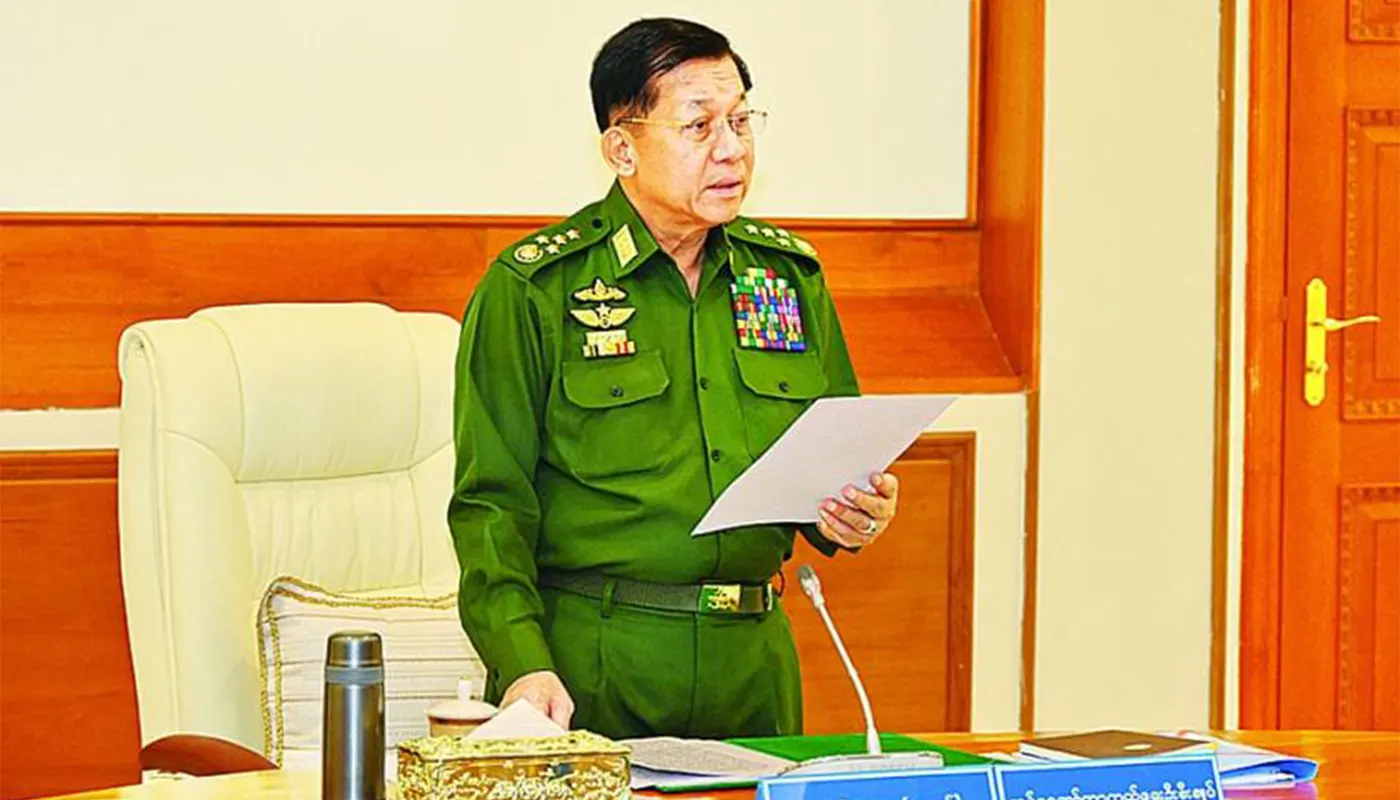YANGON — Myanmar’s National Defence and Security Council (NDSC) has formed a new union government and established a State Security and Peace Commission, both under top military leadership, the state-owned Myanmar Radio and Television (MRTV) reported.
The new union government is headed by U Nyo Saw as Prime Minister, while the State Security and Peace Commission is chaired by Senior General Min Aung Hlaing, consolidating his control over security affairs.
Simultaneously, the NDSC annulled its previous order that had transferred sovereign power directly to the Commander-in-Chief of Defence Services. The move comes as the junta officially ended a four-year state of emergency and declared plans to hold national elections by December 2025.
Under the restructured arrangement:
- The State Administration Council, previously the central authority since the 2021 coup, has been dissolved, and all governmental functions have been absorbed by the NDSC, a body dominated by military leadership.
- Min Aung Hlaing, now serving as acting president and chair of both the NDSC and the newly formed State Security and Peace Commission, retains ultimate authority over the country’s administration and security.
- In parallel, the NDSC imposed 90-day local martial law in 63 townships—many in conflict zones—to oversee security ahead of the elections.
The coup-installed junta portrays these moves as preparatory steps toward multi-party elections scheduled for December, aiming to demonstrate a return to constitutional order. However, international observers and opposition groups remain sceptical, denouncing the planned vote as likely to be neither free nor fair amid restrictions on media, political dissent, and the ongoing civil war.
Operating from a legal basis cited in the 2008 Constitution, the NDSC holds sweeping powers during emergencies, including legislative, executive, and judicial authority—but critics argue the military’s consolidation of control severely undermines multi-party democracy.
Opposition forces—including the exiled National Unity Government and armed ethnic groups—have pledged to reject the election framework, labelling it a façade designed to legitimize military rule and promising continued resistance.
Source: Local News Agencies





